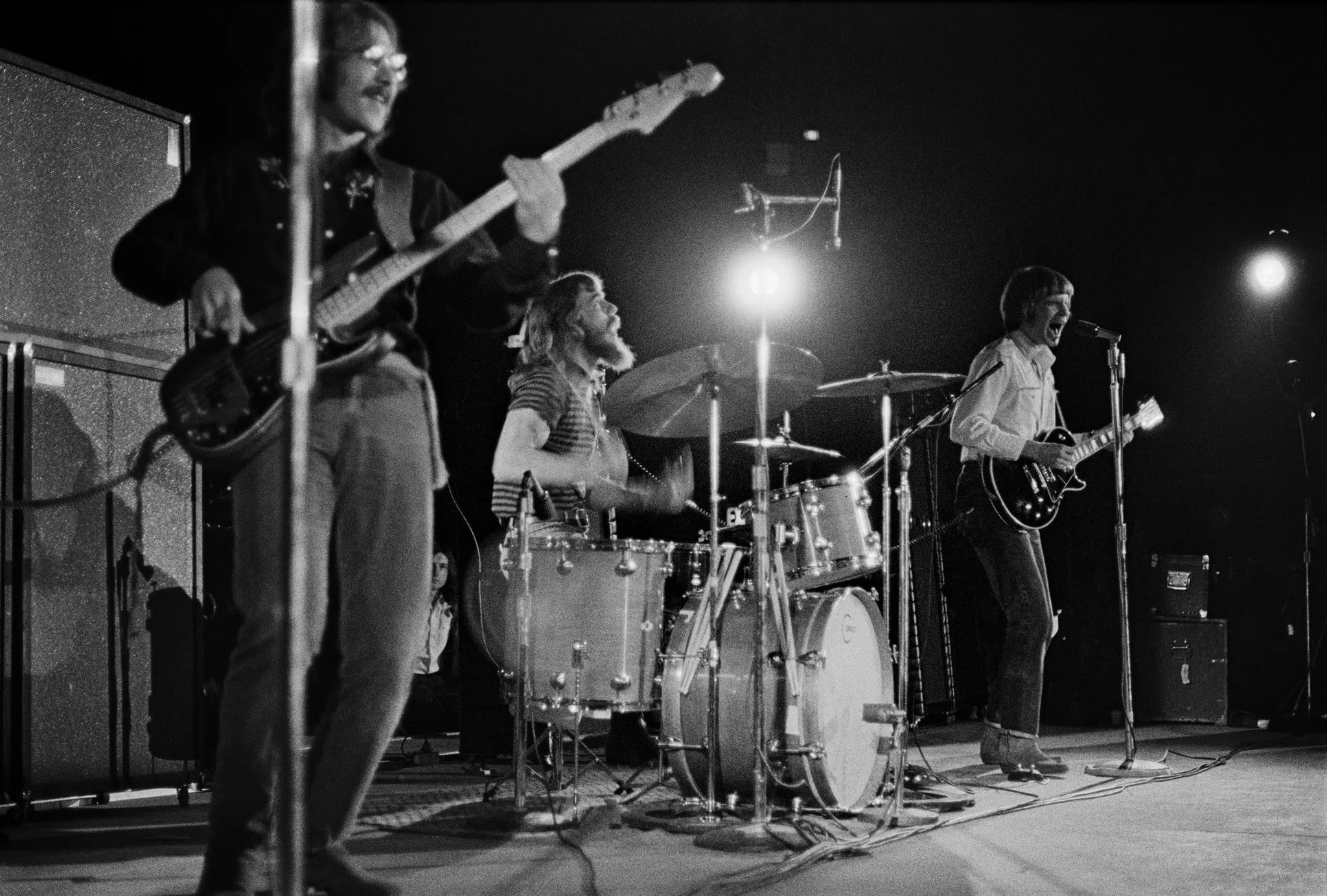
“My Baby Left Me” is CCR’s leanest kind of heartbreak—an old blues wound retold with rock ’n’ roll nerve, like a bruise you press just to prove it’s still there.
There’s a special honesty in a song that doesn’t dress its sorrow in poetry. “My Baby Left Me” doesn’t circle the pain, it points straight at it: she’s gone, she didn’t explain, and the mind is left doing what the mind always does—replaying the last conversation, inventing the missing reasons, asking the same question in different clothes. When Creedence Clearwater Revival recorded it, they didn’t try to turn that ache into something fashionable. They did what CCR did best: they tightened it, sharpened it, and let it hit you fast.
CCR’s version appears on Cosmo’s Factory, released in July 1970 by Fantasy Records, an album that didn’t merely succeed—it dominated, spending nine consecutive weeks at No. 1 on the Billboard 200. Inside a record stacked with motion and confidence—songs that seem to run on pure gasoline—“My Baby Left Me” arrives like a quick jab to the ribs. It’s short (about 2:17), and it sits early in the sequence, track 2, right after the charging opener “Up Around the Bend.” That placement matters: CCR is telling you, immediately, what kind of band they are. Yes, they can fly down the highway—but they can also stop for a moment and bow to the roots that built the road.
Those roots go deep. “My Baby Left Me” was written by Arthur “Big Boy” Crudup, a bluesman whose fingerprints are all over the foundation of rock ’n’ roll. Crudup first recorded the song in 1950 in Chicago, and it lived the long blues life after that: traveling by jukebox, by memory, by cover versions, finding new voices in new decades. Perhaps the most famous early rock ’n’ roll connection is Elvis Presley, who recorded “My Baby Left Me” in 1956, releasing it as the B-side to “I Want You, I Need You, I Love You.” That detail matters because CCR’s take doesn’t just salute Crudup—it also carries the shadow of that Elvis-era rockabilly snap. You can hear it in the way the band moves: brisk, clipped, no wasted gestures, like they’re paying respect without slowing the pulse.
And then there’s the little side-story that makes the song feel almost fated for John Fogerty. In later years he spoke about hearing the Elvis record on a jukebox near his family’s summer place in Winters, California, and he went so far as to say, “This record may be the reason that I play guitar.” That’s not a throwaway line—it’s the kind of confession musicians make when they’re telling you where the fire truly started. Suddenly, CCR covering “My Baby Left Me” isn’t just an album decision; it’s a circle closing. A boy hears a record in a small market, decades pass, and the man he becomes records the same song—now with the authority of someone who has lived inside it.
Musically, CCR’s version is a masterclass in their signature economy. The groove doesn’t beg; it walks forward with certainty. The guitars bite without showing off. The rhythm section stays steady, like a heartbeat that refuses to dramatize the pain. And Fogerty’s vocal—rough-edged, urgent, unmistakably American—makes the lyric feel less like theater and more like a report from the scene. He sings it the way people talk when they’re trying to stay composed: not wailing, not collapsing—just stating what happened, and letting the silence after the line do the grieving.
That’s the hidden power of “My Baby Left Me.” It isn’t a long song because heartbreak, in real life, often arrives in short sentences. She left. She didn’t say why. Now I’m alone with the questions. CCR preserves that blunt realism. They don’t romanticize abandonment. They don’t soften it. They let it be what it is: the sudden emptiness where an explanation should have been.
And maybe that’s why this track endures so well inside Cosmo’s Factory. Among the bigger hits and bigger moments, “My Baby Left Me” is a reminder that CCR’s greatness wasn’t only about charts or speed. It was about memory—about honoring the old blues truths and carrying them forward without apology. In two minutes and change, they make a 1950 song feel present again: the same wound, the same night air, the same stunned silence after the door closes—only now with a backbeat strong enough to keep you standing.